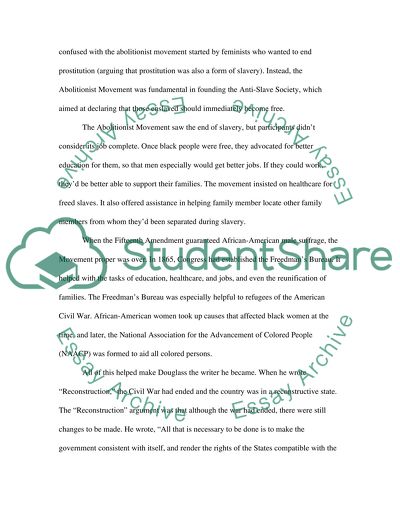Cite this document
(“Frederick Douglas Essay Example | Topics and Well Written Essays - 2000 words”, n.d.)
Retrieved from https://studentshare.org/miscellaneous/1510305-frederick-douglas
Retrieved from https://studentshare.org/miscellaneous/1510305-frederick-douglas
(Frederick Douglas Essay Example | Topics and Well Written Essays - 2000 Words)
https://studentshare.org/miscellaneous/1510305-frederick-douglas.
https://studentshare.org/miscellaneous/1510305-frederick-douglas.
“Frederick Douglas Essay Example | Topics and Well Written Essays - 2000 Words”, n.d. https://studentshare.org/miscellaneous/1510305-frederick-douglas.


